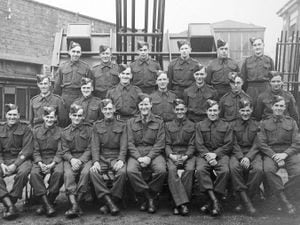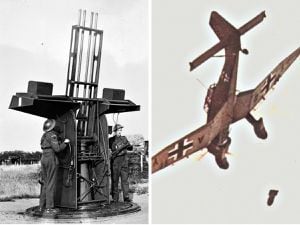The enemy who came to stay: From German soldier to Sankey wheel specialist
For a war veteran, he had a true tale of adventure to tell, with deadly drama, the horrors of bombing, atrocities, a touch of romance, spying, a daring escape... and fun times in the Hitler Youth.

For Heinrich Elfner was a German serviceman who, with his home falling within post-war Communist East Germany, chose to settle in Britain. It would be many years before he would see his family again.
And with the stories of those on the losing side of the war being more rarely recorded, two Shropshire authors are trying to redress the balance with their book "The Waffenmeister" (the weapons master) telling his tale.
Ken Ballantyne of Telford, who has written a series of books bringing to life the true stories of war veterans, has teamed up with Jim McNally, a great friend of Heini, as he was always known.
"Seeing the war from the German side, and the years before it, makes this an unusual, revealing, fast-moving, graphic, and at times very funny account of an ordinary German soldier’s experiences during World War Two," said Ken.
"The Waffenmeister has been a very different challenge to write and has given me the opportunity to reveal a fascinating and unusual insight into the conflict from the German side as well as life for ordinary people in Germany during the 1930s.
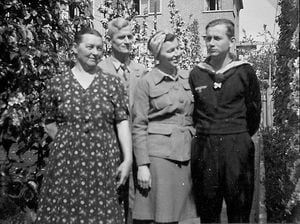
"I think what struck me most of all when writing it was just how truly similar the lives of the ordinary servicemen on both sides were. When all the headline preoccupation surrounding Nazism, the SS, and the Gestapo are stripped out, what is left are men and women on both sides fulfilling their duty as best they can when they would much rather be at home and at peace."
Born in January 1923, Heini served in the German navy during the war in coastal artillery, being based at Heligoland. He was detailed from time to time to help survivors and recover bodies in bombed German towns and cities, and later was posted to serve in the Adriatic sector.
He was captured in 1945 by Yugoslav partisans, and his life was to hang by a thread – dozens of his comrades were shot out of hand. He escaped, assumed a false identity, and was hidden by Italian friends, and later surrendered to the British. He was eventually sent to Britain and joined a team of prisoners of war tasked with dealing with unexploded bombs in Liverpool.
In June 1948 he married Joan Critchley, and in 1956 they moved to a house in Muxton in Shropshire – it was to be their home for nearly 50 years. Both of them worked at Sankey's in Hadley.

He died on December 31, 2009, six years to the day after Joan.
Ken said: "Heini did leave a wealth of first hand accounts of his life.
"Jim McNally knew Heini very well for many years. They had met through work as Jim was a tyre engineer with Goodyear in Wolverhampton, which linked with Heini's role in specialist wheel design at Sankeys. Jim's work also took him to Germany quite a lot.
"After Heini retired, he started to piece together his wartime past. Then, after Joan died, Jim, who was by then retired, stepped in and accompanied Heini on further trips.
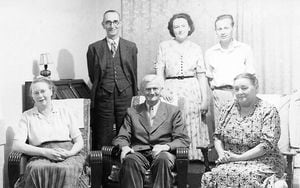
"They put together the story of Heini's life, and it was this basic manuscript that Jim brought to me and asked me to pull together and write in a cohesive form. Thus, together with Jim's personal knowledge and long friendship with Heini, I was able to write the story in the first person, which is my preferred style."
Heini often wondered about the fate of his family, friends and wartime comrades. He and Joan first returned to the Adriatic in 1978, visiting the island of Rab, where he saw his wartime haunts.
"I had expected a rather anti-German sentiment, but the opposite was the case and we were made very welcome," Heini said afterwards.
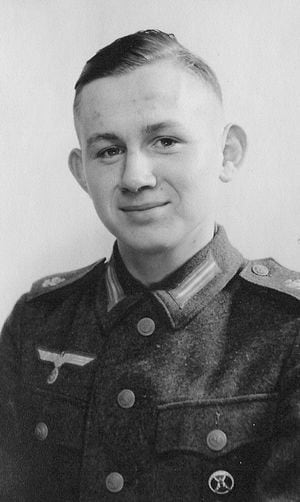
And after the fall of the Berlin Wall he was able to return to his home city of Jena (south west of Leipzig) in September 1990, staying with relatives.
The descent of the Iron Curtain which divided Germany separated him from his parents for many years, but he was able to meet them on at least one occasion after the war, when they came to see him and Joan in Muxton in the 1950s.
"The Waffenmeister" costs £9.99 and is available from publishers Laundry Cottage Books, Admaston, Telford, TF5 0AD, and from Bookshrop in Whitchurch and Darlingtons of Ironbridge.


